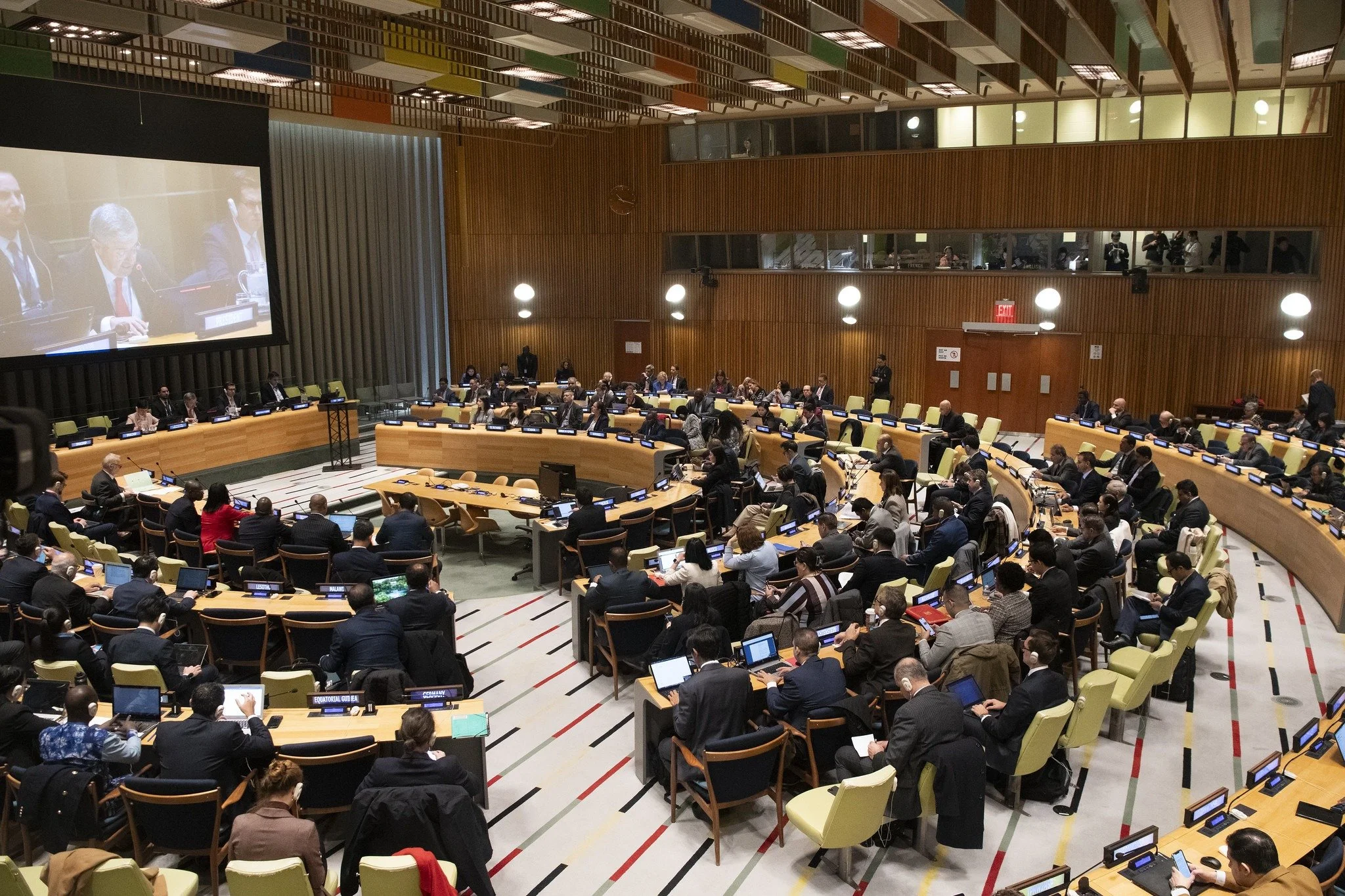Challenges of the Non-Proliferation Treaty Addressed by Dr. John Guilfoyle, President of IPPNWC
Second Meeting of States Parties to the TPNW, UN Headquarters in New York (Credit: ICAN, Darren Ornitz)
As the second Meeting of States Parties (MSP) to the Treaty on the Prohibition of Nuclear Weapons (TPNW) concludes it is appropriate to examine its draft statement in light of Canada’s ongoing effort to prevent nuclear war. While Canada has not signed this treaty yet, it has committed itself to supporting the Non-Proliferation Treaty (NPT). Our commitment to ridding the world of the devastating consequences of nuclear weapons focuses on support for this treaty. Signed in 1970, the NPT and the progress towards its objectives needs to be examined against its achievements and the current reality.
It has three pillars: disarmament, non-proliferation and nuclear power.
The last two meetings of the NPT ended with no consensus and no progress towards disarmament. Many of the other treaties which control aspects of nuclear weapons have either run their course or are being ignored. In practical terms, there, currently, is no pathway to disarmament as envisaged by the NPT.
Non-proliferation is equally problematic. While the number of states that have acquired nuclear weapons has been small, the countries that have acquired them, since the NPT has been in place, have a troublesome history of conflict. Currently one is in a bitter conflict where use of nuclear weapons has already been threatened. The other element of proliferation is the distribution, growth and modernization of current nuclear arsenals. All nuclear weapons states are planning a round of modernization that is intended to increase the lethality and add to the scenarios in which nuclear weapons can be used.
We may have, in absolute numbers, fewer missiles but we have many more possibilities in which their use is planned. While the US and the Russian Federation have the lion’s share of this destructive capacity, China is entering this lethal race with some vigor. The potential humanitarian impact is beyond our imagination. As quoted in the previously mentioned draft statement, there is increasing evidence “for the multifaceted and cascading effects of the catastrophic humanitarian impact.”
Quite simply put, countless people will die and the environment will suffer, whether by intent or by accident.
Finally, the third pillar of the NPT - nuclear power - seems to be doing quite well. This is no accident. We cannot have nuclear weapons without nuclear power. Simplistically, nuclear power is the driver of proliferation. India made its weapons with the help of nuclear technology provided by Canada. Nuclear weapons require the existence of a nuclear industry to provide the fuel for bombs and the technology to make them more deadly. This is the Faustian bargain at the heart of the nuclear industry. Indeed, various bromides have been given such as “energy too cheap to meter” to cloak this reality. The current greenwashing of nuclear power continues this tradition.
Evidence based policy suggests that expansion of nuclear power as a solution to the climate crisis needs to be examined very carefully on its own merits in comparison to alternatives. In addition, it needs to be considered how support of this third pillar of the NPT is actually preventing progress on the other two pillars of this critically important treaty.
A world where there is no credible pathway to nuclear disarmament, where the potential for proliferation is increased, and there is a widening spread and enlarging capacity of the nuclear industry to be used for weapons is a nightmare scenario in terms of human health.
This is where we are with the NPT 50 years later.
It is failing in its promise.
Canada cannot put all its eggs in this one policy basket. Canada, immediately, needs to reconsider its support of the nuclear industry. In particular, Canada needs to have a clear policy of reprocessing of plutonium. Canada needs to re-examine its stance against the TPNW and to determine how it can be used to help the NPT have its desired effect, which is a world free from the enormous threat that nuclear weapons pose to our collective health.
We close in thanking you for your continued efforts to keep Canadians safe and working towards a world where the prerequisites for health, peace, a sustainable ecosystem and social justice, are available to all.
Yours sincerely,
Dr John Guilfoyle, MB BCh BAO, FCFP
President, International Physicians for the Prevention of Nuclear War Canada

